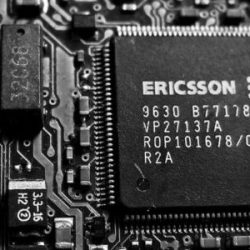The Traditional Knowledge Digital Library (TKDL) is the first database of its kind in India. It is being used to document and protect traditional Indian knowledge of medicinal practices, from misappropriation and monopolization by corporate entities and foreign research organizations through processes like patenting. It aims to improve accessibility to India’s traditional knowledge, available in languages such as Sanskrit and Urdu, so that patents trying to wrongfully gain monopolies on such knowledge are not granted. A traditional knowledge library is incredibly important for countries like India that have a rich cultural history.
In 1995, the United States Patent and Trademark Office (USPTO) granted a patent for the healing properties of turmeric to two expatriate Indian scientists working with the University of Mississippi Medical Centre. This caused an uproar in India. The Council of Scientific & Industrial Research (CSIR), India, opposed this registration claiming that this was an act of biopiracy as turmeric had been commonly known and used for medicinal purposes in Indian households for thousands of years. This resulted in the patent being revoked by the USPTO in 1998 and accelerated the need for a method to protect traditional knowledge in India.
Despite all the advantages that such a database has, there is an issue with this specific implementation. The issue arises from the limited access granted to the database by the CSIR. CSIR has currently restricted access to this database only to 13 Patent Offices. The database is not available to the public.
The TKDL website states:
“As per the terms and conditions of the Access agreement, examiners of patent office can utilize TKDL for search and examination purposes only and cannot reveal the contents of TKDL to any third party unless it is necessary for the purpose of citation. TKDL Access Agreement is unique in nature and has in-built safeguards on Non-disclosure to protect India’s interest against any possible misuse.”
As per the Indian Patents Act 1970, for any information to qualify as prior art, it needs to be present in the public domain prior to the date of the patent application / priority date. Traditional knowledge, by its very nature, is public. Hence, restricting access to a database containing such knowledge is unjustified and poses an obstacle in achieving the database’s purpose. Such a database should be accessible by the public and be open to public scrutiny. This would only increase the reliability and legitimacy of the database.
The benefits of allowing public access to such a database far outweigh the advantages of keeping it private. Some of these benefits are:
- Access to prior art (as it is with current technology), prevents the need to “reinvent the wheel” – which boosts innovation. Researchers will be able to use the information in the database to develop better medicines and technology.
- The contents of the database will be open to peer review and public scrutiny, hence ensuring its legitimacy. It would prevent undue protection of any information in the name of traditional knowledge.
- There will be no reason for organizations and individuals to not take the database’s contents into account, hence facilitating the primary purpose of creating the database.
The TKDL is a necessity for countries like India. Providing the public with access to the database will be a step in the right direction. It will ensure that the database achieves its purpose of preserving and protecting India’s traditional knowledge.











